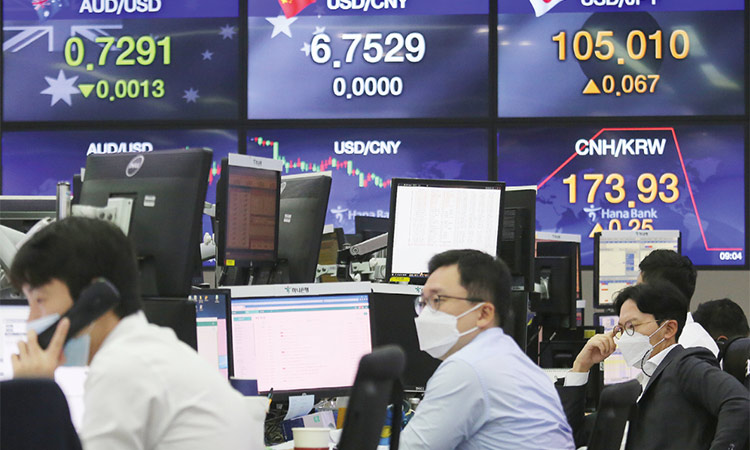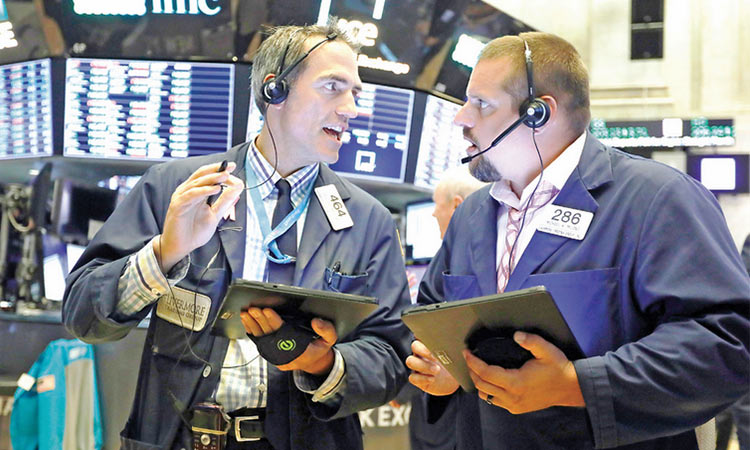Scorching US economy throws off market’s Fed cut narrative

Photo used for illustrative purposes.
Expectations that the Fed would pivot to cutting rates sent stocks soaring at the end of 2023 and pushed the S&P 500 to a record high in January. The index is up 4% this year after surging 24% in 2023.
That narrative has been jolted by evidence that the economy may be running too hot for the Fed to cut rates without risking an inflationary rebound. Friday’s blockbuster U.S. employment number was the latest sign of stronger-than-expected growth, after Fed Chairman Jerome Powell days earlier deflated hopes the central bank would begin lowering rates in March.
“Looking back on the fourth quarter and the recent rally in stocks, a lot of it was driven from the thought of a Fed pivot, and the Fed pivot is evaporating in front of our eyes,” said Matthew Miskin, co-chief investment strategist at John Hancock Investment Management.
Market expectations of a near-term rate cut dimmed after the jobs data, with futures tied to the Fed’s main policy rate reflecting a 70% chance of the central bank lowering borrowing costs at its May 1 meeting, from over 90% on Thursday, according to the CME FedWatch Tool. The probability of a March cut stood at about 20%, from just under 50% a week ago.
With Friday’s jobs report, “the six or seven rate cuts that markets had been pricing in seems very offside,” Seema Shah, chief global strategist at Principal Asset Management, said in a written commentary.
Friday’s jobs report showed nonfarm payrolls increased by 353,000 jobs last month - well above the 180,000 increase expected by economists polled by Reuters. The economy also added 126,000 more jobs in November and December than previously reported.
Plenty of investors believe the strong growth is a positive for stocks, especially if accompanied by better-than-expected corporate earnings. The S&P 500 hit a fresh high on Friday after the jobs data, helped by the soaring shares of Facebook parent Meta Platforms and Amazon, which rose 20% and 8%, respectively, following their corporate results.
For 2024, S&P 500 earnings are expected to jump nearly 10% after a 3.6% rise in 2023, according to LSEG data. Those expectations will be tested in the coming week with another heavy batch of reports, including from Eli Lilly, Walt Disney and ConocoPhillips.
“I’ll trade a stronger economy with less rate cuts than a weaker economy with more rate cuts,” said Keith Lerner, co-chief investment officer at Truist Advisory Services.
Analysts at Capital Economics forecast a “banner” year for US stocks, finishing 2024 over 10% above current levels at 5,500. Optimism over the business potential of artificial intelligence, which helped power stocks such as Nvidia last year, will likely drive those gains, they said.
However, sustained above trend growth poses another issue - fears of an inflationary rebound.
“January job growth figures were strong, possibly too strong,” said Russell Price, chief economist at Ameriprise, in a Friday note. “There were multiple signs of strong wage growth which could filter through to resurgent ... inflation pressures if maintained.”
A longer period of high interest rates also could increase stress for areas of the economy that are already hurting such as commercial real estate.
Shares of New York Community Bancorp, a major CRE lender in New York, have tumbled in recent days, setting off broader regional banking concerns, after the company slashed its dividend and posted a surprise loss.
Ramped-up growth, along with expectations of rates staying at current levels for longer, could drive Treasury yields up. Higher yields can pressure equities because they compete with stocks for investors, while higher rates raise the cost of capital in the economy.
The benchmark 10-year Treasury yield, which moves inversely to bond prices, hit 4.05% on Friday.
Investors are still pricing in around 125 basis points of Fed cuts this year, LSEG data shows. That is down from around 150 basis points priced in earlier this week, but still far more than the 75 basis points the Fed has projected. - Economists are taking flak after missing the mark on inflation, failing to anticipate disruptions in global supply chains and forecasting a recession that has not materialised.
The Covid-19 pandemic, Russia’s war in Ukraine and more recently the Middle East conflict have made it tougher for experts to see clearly into their economic crystal balls.
European Central Bank president Christine Lagarde joined the chorus of criticism at the World Economic Forum in Davos, Switzerland, last month.
“Many economists are actually a tribal clique,” she said, referring to a lack of openness to other scientific disciplines.
“They quote each other -- men more than women but that’s another story,” the former IMF chief and French finance minister said. “But they don’t go beyond that world because they feel comfortable in that world.”
Economists need to get out of their comfort zone of Excel spreadsheets and rigid models, some economists say about their own kind.
The world “has changed a little bit”, Peter Vanden Houte, chief eurozone economist at ING bank, said sarcastically.
After years of low inflation, the post-Covid reopening of economies sent prices rising and they soared further after Russia’s invasion of Ukraine, belying assurances from Lagarde and US Federal Reserve chairman Jerome Powell that the increases would only be “transitory”.
The central banks had to launch into a series of interest rate hikes to combat inflation. While price rises have cooled in recent months, policymakers have kept the rates elevated as they wait to see whether they can be cut later this year.
Lagarde has admitted that the forecasts used as a basis for ECB policy decisions were not always right and that factors linked to the crises were not taken into account in its models.
Agencies







